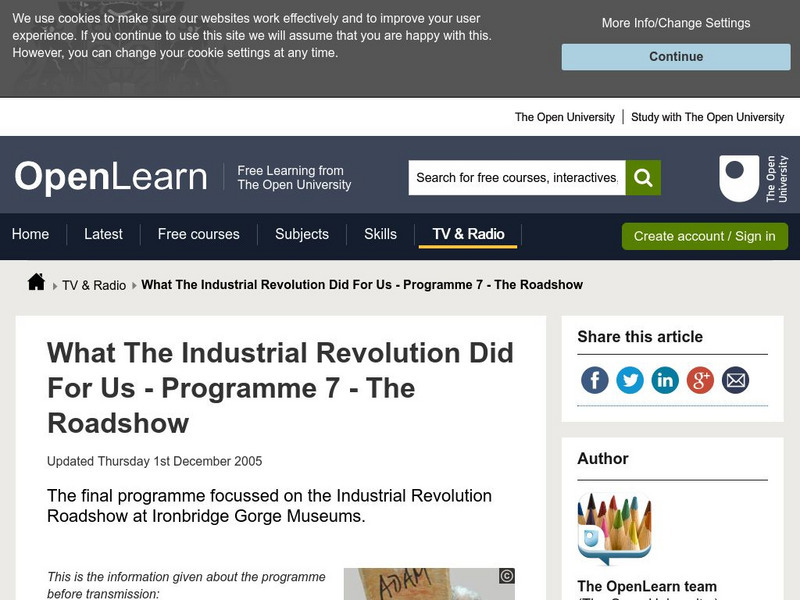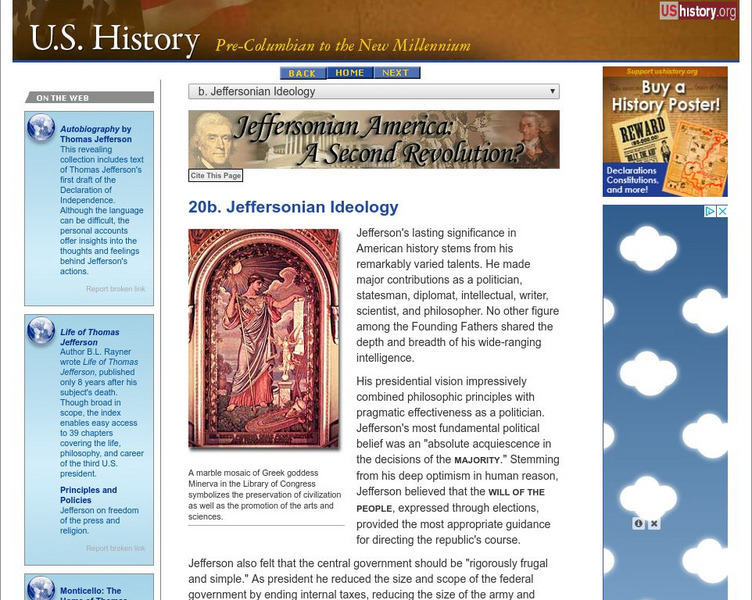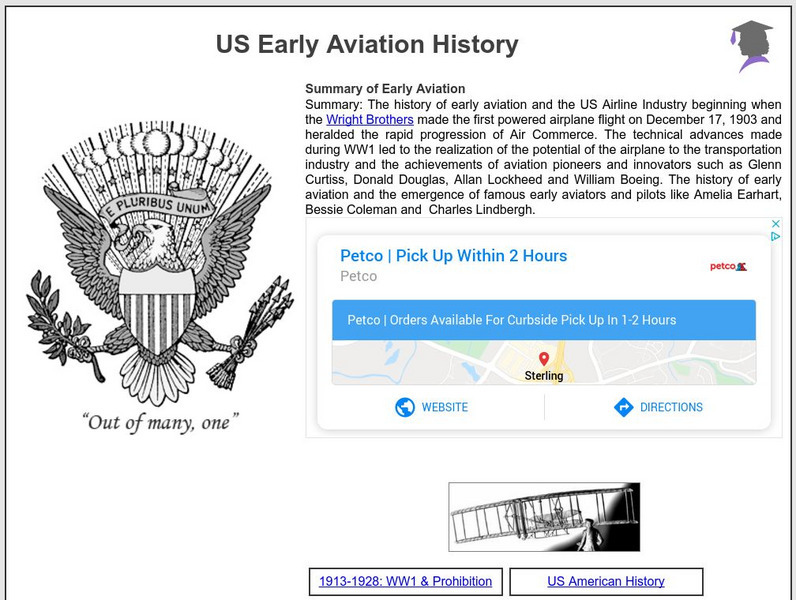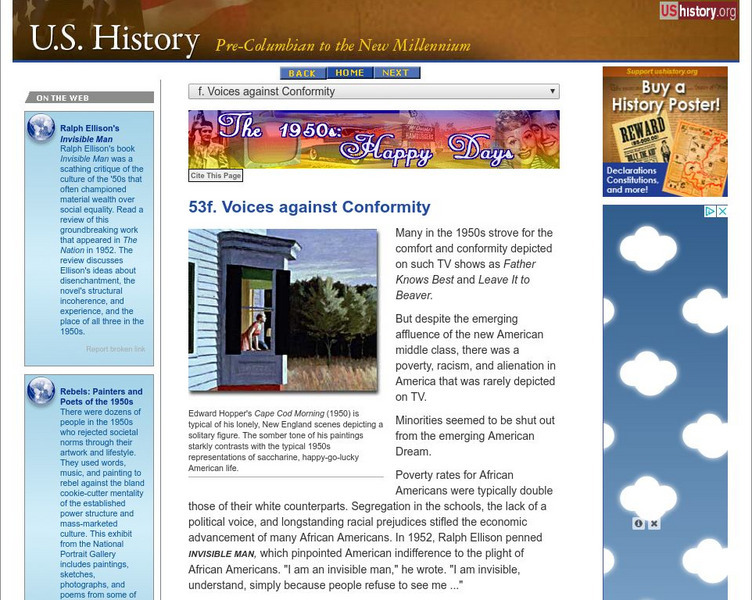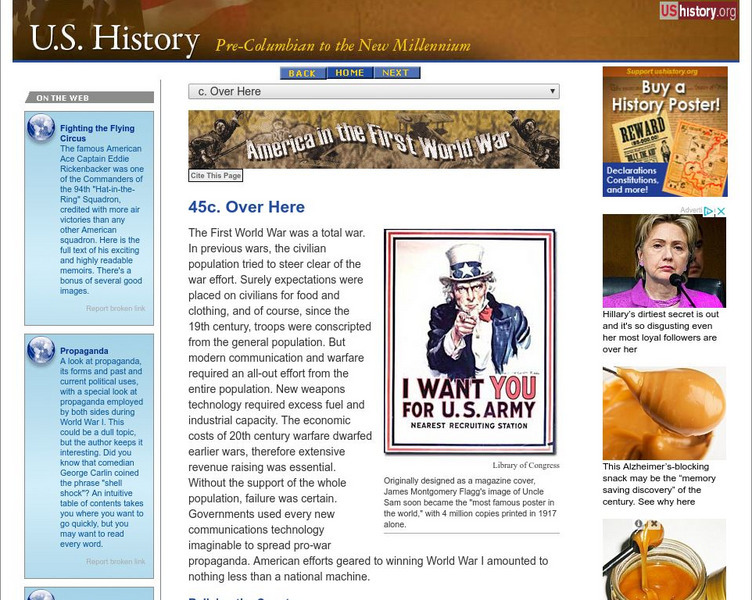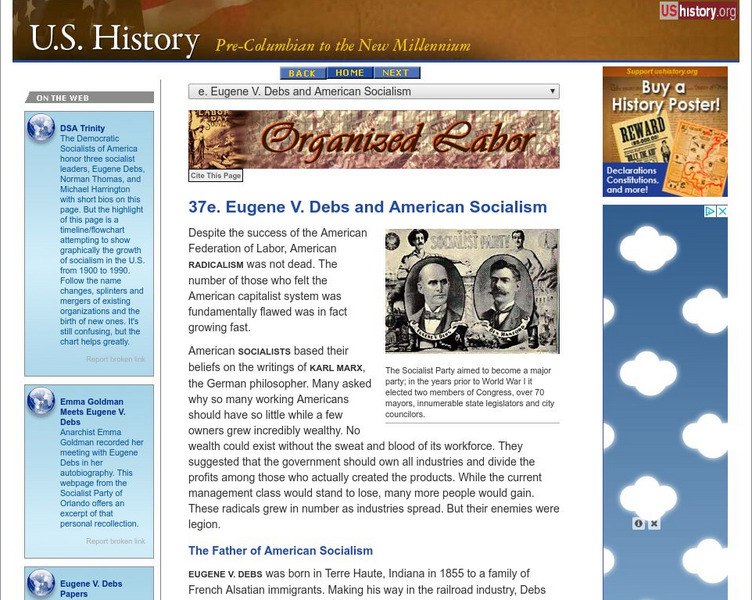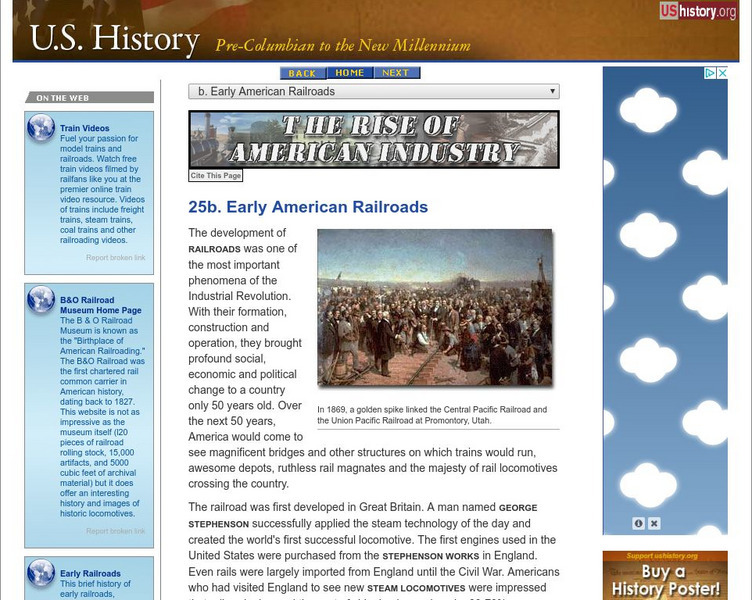Independence Hall Association
U.s. History: The New Tycoons: Andrew Carnegie
Andrew Carnegie was a business magnate in the steel industry. See how he used the vertical integration theory of operating his businesses. Read also about his phlanthropy across the United States after he sold his company.
Independence Hall Association
U.s. History: Fdr's Alphabet Soup
Amazing number of agencies formed as a result of New Deal legislation. Read about the agencies and legislation whose acronyms have become part of governmental history.
Independence Hall Association
U.s. History: Inventors and Inventions
The industrial revolution in America spawned the inventions of many inventors, who improved technology in many different areas. See how transportation, agriculture, and communications were transformed because of these inventions.
OpenStax
Open Stax: Industrialization 1870 1900: A New American Consumer Culture
Learn about the development of the consumer mindset at the end of the 19th century.
PBS
Wnet: Thirteen: Wake Up, America: Industrial Revolution in America [Pdf]
A lesson plan from the producers of the 16-episode PBS series "Freedom: A History of US" that looks at the technological advances of early nineteenth-century America and the birth of the Industrial Revolution in America.
Virginia Tech
Digital History Reader: Industrialization's Discontents: Great Strike of 1877
With its beginnings along the railroad tracks in Maryland and West Virginia, the Great Railroad Strike of 1877 was the first national strike in response to poor wages and poor conditions. Understand the impact of this strike on the...
PBS
Pbs Learning Media: Primary Source Set: Early Chinese Immigration to the Us
This collection uses primary sources to explore early Chinese immigration to the United States.
Other
What the Industrial Revolution Did for Us
This online companion to a television production in the U.K. contains information about the achievements of the Industrial Revolution. Click the Changing Landscape link to view an interactive map showing how the landscape of Great...
Independence Hall Association
U.s. History: Organized Labor
Industrial workers, as industry emerged and grew in the last half of the 19th century, did not profit as the business tycoons did. Read about the very beginnings of attempts to organize as a force to demand higher wages, a shorter work...
US Army Center
U.s. Army Center of Military History: Mobilization in World War Ii
This site from the US Army describes steps taken in the United States to prepare for war. Scroll through to see how the United States mobilized for World War II.
PBS
Pbs News Hour Extra: Gulf Oil Spill Could Be Most Damaging in History
Discussed is the BP oil spill in the Gulf of Mexico, the attempts to clean up the oil, animals and industries threatened, policies questioned and a comparison made to the Exxon Valdez oil spill. Includes instructional resources. (4 May...
Independence Hall Association
U.s. History: Jeffersonian Ideology
An easy to understand overview of the thinking of Thomas Jefferson in terms of politics and the role of the people in political action. See what he feared as the nation was becoming industrialized, and read about the contradictions in...
Siteseen
Siteseen: American Historama: Us Early Aviation History
A comprehensive overview with detailed facts about early aviation, aviators, and the airline industry.
Other
Department of Transportation: Maritime Career
Resource describes jobs in the maritime industry, ways to get training for various career paths in the industry, and employment opportunities. Links to Maritime Museum websites are included.
Country Studies US
Country Studies: Russia
A 29-page pdf file containing an enormous amount of information about Russia. Includes major cities, holidays, history, geography, climate, natural resources, population, religion, education, economy, government, budget, industry and...
Country Studies US
Country Studies: Bolivia and the United States
Explores the relationship of the United States and Bolivia during the 1980s concentrating mostly on the narcotics industry and their joint fight in the drug wars.
Independence Hall Association
U.s. History: Voices Against Conformity
The decade of the 1950s was kown for conformity. There was an undercurrent of rebellion, especially among younger Americans. Read about the Beat Generation, alternative literature, rebellion in art, and treatment of those who were not...
Independence Hall Association
U.s. History: An Evaluation of the New Deal
No discussion about the Great Depression can be complete without a look at the legacy of Franklin D. Roosevelt and his New Deal programs. Read about the changes and effects on the economy brought about by the programs, but see what...
Independence Hall Association
U.s. History: Books and Movies
A look at the literature and movies written and produced in the Jazz Age. See how the writers of the age reflected the consumer society and the emptiness of middle class. Movies appealed to mass culture and millions went to the movies...
Independence Hall Association
U.s. History: Over Here
World War I was not fought by Americans just in Europe. Read about the many ways people at home helped the war effort. See how badly German-Americans were treated as anti-German passions were fueled.
Independence Hall Association
U.s. History: The Ways of the Cowboy
The cowboys were the background of the cattle boom in the 19th century. Read about their life, and their demise.
Independence Hall Association
U.s. History: Eugene v. Debs and American Socialism
Read about the growth of the Socialist Party in America under the leadership of Eugene V. Debs. Find out about the strikes he led, his political activities, and his arrest for sedition in 1918. Read also about the radical union,...
Independence Hall Association
U.s. History: The New Tycoons: John D. Rockefeller
John D. Rockefeller was a poster boy for big business in the late 19th century. Read about how he made his vast fortune, ans see how he ran his company.
Independence Hall Association
U.s. History: Early American Railroads
Read about the growth of railroads throughout the eastern part of the United States, which greatly reduced transportation costs. See why there was opposition to railroads from many groups. Be sure to look at the stereograph of the...




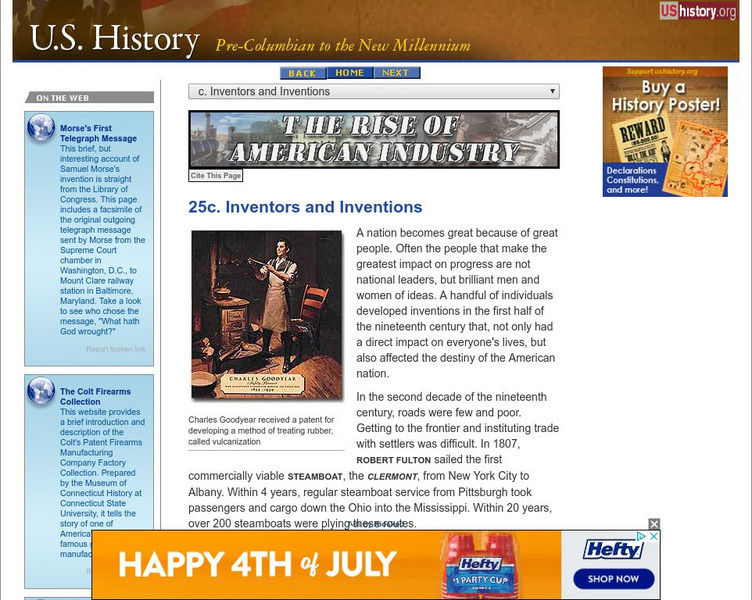

![Wnet: Thirteen: Wake Up, America: Industrial Revolution in America [Pdf] Lesson Plan Wnet: Thirteen: Wake Up, America: Industrial Revolution in America [Pdf] Lesson Plan](https://d15y2dacu3jp90.cloudfront.net/images/attachment_defaults/resource/large/FPO-knovation.png)

